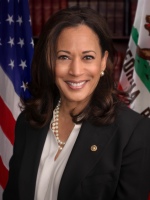
Previously published at GBH News.
Life in the 21st century is defined by certain toxic realities. Extreme income inequality, political polarization, the breakdown of community life and the rise of narcissistic individualism have all helped create a meaner, more narrow-minded America than the one we — or, depending on your age, your parents — grew up in.
This fall from grace didn’t occur overnight. Our devolution from hope and idealism to anger and existential dread took many decades. It didn’t end with the defeat of Donald Trump, nor will it end with a vaccine for COVID. But it can end. We know it can, because it’s happened before.
That’s the optimistic thesis of Robert D. Putnam and Shaylyn Romney Garrett’s book “The Upswing: How America Came Together a Century Ago and How We Can Do It Again” (Simon & Schuster). Their argument, in brief, is that the Gilded Age of the late 19th century looked very much like today. Or as they put it: “Inequality, political polarization, social dislocation, and cultural narcissism prevailed — all accompanied, as they are now, by unprecedented technological advances, prosperity, and material well-being.”
Starting in the Progressive Era, we began moving toward greater equality, political comity and community-mindedness. And despite a few blips along the way, these trends continued into the mid-1960s before beginning their long slide into the abyss.
Putnam and Garrett’s grand theory is based on deep statistical analysis encompassing such disparate data points as party votes in Congress, attendance at religious services and Googling how often words like “responsibility” and “rights” appear in books over time. Each of the four markers they measure have moved almost in unison in an upside-down “U” curve — uphill in a positive direction until just past mid-century and then downhill to the present.
The authors do not fall into the trap of nostalgia, as they point out that the “U” curves played out very differently for African Americans and women. Based on statistics alone, for example, it’s clear that Black Americans’ economic and political prospects improved in the decades before the civil-rights movement just as they did for white people — but with a significant caveat.
Putnam and Garrett are careful to note that a lot of the progress that Black people made in income, education and voting was the result not of a general improvement in social conditions but, rather, of the Great Migration, in which some 70 million Blacks moved from the racist South to the somewhat less racist North. And while the downward trend that affected society as a whole starting in the late ’60s affected Black people as well, the authors point out that white backlash was a significant contributing factor.
“The Upswing” complements another recent book on our downward slide, Kurt Andersen’s “Evil Geniuses: The Unmaking of America” (Random House). Putnam and Garrett’s work is built upon a sturdy mountain of quantitative research. “Evil Geniuses,” by contrast, is a morality play, the story of how political figures such as Barry Goldwater and Ronald Reagan, the economist Milton Friedman and the conservative activist Lewis Powell (later named to the Supreme Court), supercharged with money from the Koch brothers, conspired to degrade the environment, deregulate business and make the rich richer.
But whereas Andersen is aware of the parallels between Trump’s America and the Gilded Age, Putnam and Garrett’s unique contribution is to show exactly how similar the two eras are, and to chart the forces that, for a time, created a fairer, more equal country — among them the reforms of the Progressive and New Deal eras and the leveling effects of World War II. (Not to make too much of that — the authors show the upward swing continued well past what would have been expected if it were only a wartime phenomenon.)
So what went wrong? Putnam, a political scientist at Harvard, and Garrett, a one-time student of Putnam’s who’s now a writer and social entrepreneur, are too careful to ascribe any single cause. As for the most obvious candidate, they note that rising income inequality is actually a lagging indicator, coming slightly after the other social markers turned south.
Instead, they speculate that it was the chaos the 1960s and mid-’70s that’s to blame. The years between the assassination of John F. Kennedy and the economic malaise of Jimmy Carter’s presidency were defined by war, racial unrest, a violent protest movement, more assassinations and a general sense of dislocation and confusion. They describe the 125-year arc they trace as “I-we-I.” In the 1970s, the pendulum swung decisively back to “I,” with community giving way to individual pursuits. “The Boomers who had entered the Sixties in idealistic togetherness,” they write, “exited the Seventies in grumpy self-centeredness.”
One omission puzzled me. The media get barely a mention in “The Upswing,” either for the salutary effects of local journalism on community-building or for the harm caused by the rise of influential right-wing propaganda outlets such as Fox News (and now Newsmax and OANN) and the algorithmic, anger-fueled monster that is Facebook.
This was especially surprising given Putnam’s past work linking civic life and local news. In his 2000 book, “Bowling Alone,” he found a strong correlation between activities such as voting, coaching youth sports and attending religious services and with the desire to keep up on community affairs. “Newspaper readers,” he wrote, “are machers and schmoozers.”
Putnam and Garrett acknowledge that the political polarization they decry in mainly a right-wing phenomenon, as they write that “bipartisanship has disappeared from American politics over the last half century largely because the Republican Party has become steadily more extreme.” The media’s role in sparking this asymmetric polarization would have been worth exploring.
The omission becomes all the more glaring in Putnam and Garrett’s final chapter, on possible solutions that might start bending the curve upward again. Mainly it consists of vignettes about Progressive Era and New Deal heroes such as Frances Perkins, Paul Harris (a creator of the Rotary Club) and Ida B. Wells. Articulating a vision for how to get back to “we” may be beyond anyone’s ability. But surely media reform needs to be part of that vision.
“The story of the American experiment in the twentieth century,” Putnam and Garrett write, “is one of a long upswing toward increasing solidarity, followed by a steep downturn into increasing individualism. From ‘I’ to ‘we,’ and back again to ‘I.’”
They have written a valuable, fascinating overview of how we got here. By following the story to well back before the beginning of the slide, they’ve revealed a cyclical nature to the dysfunction that now pervades the national landscape. We live in a time when Amazon founder Jeff Bezos increased his fortune by $48 billion during the first few months of the pandemic while millions lost their jobs and went hungry; when wearing a mask to prevent the spread of COVID and simply acknowledging the outcome of the election are seen as partisan acts.
The promise of “The Upswing” is that we’ve been here before and got out of it through goodwill and hard work. Can we do it again? Even with decency and normality returning to the White House, it’s hard to see how that’s going to happen.
Then again, maybe the most important message that Putnam and Garrett have to offer is that, ultimately, it’s up to us.
Comments are open. Please include your full name, first and last, and speak with a civil tongue.









